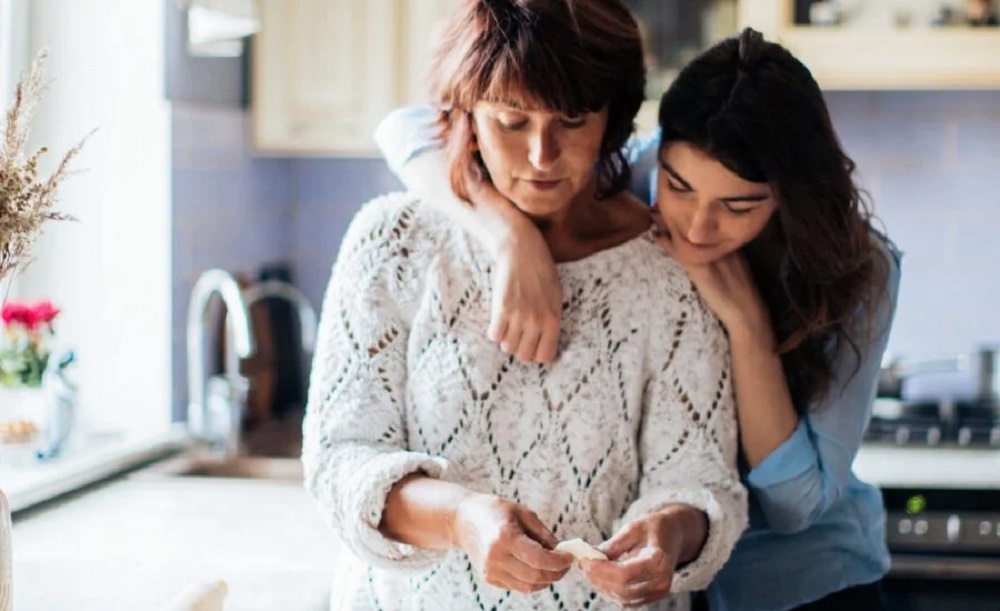The article “What happens to real estate when a spouse dies and property isn’t held jointly?” was originally published on MoneySense on June 30, 2021. Photo by Elina Fairytale from Pexels.
Barb’s mother is living in a house that was owned by her deceased father, and remains in the name of his estate. Should the family work to change title now, or wait to deal with it upon her mom’s passing?
Q. My family lives in New Brunswick. My father passed away in 2010 and my mother still lives in the house they bought in 1955. One of my brothers lives with her, and her intention is to leave the house to him; she has stated that in her will.
The issue we have is that the house was registered solely in my father’s name. The property tax bills are in the name “estate of….” I realized the ownership problem only recently when my mother asked me to take over the management of her finances and gave me power of attorney.
Apparently, Mom did make one attempt to have the house changed to her name by visiting Service New Brunswick, but nothing seemed to become of this. She said she gave them Dad’s will so now we don’t have a copy of it.
My question is whether we should try to straighten this out now, and get the house registered in Mom’s name, or just wait and deal with this upon her passing?
–Barb
A. When real estate is not held jointly, and someone dies, it must generally pass through their estate. If the deceased had a will, the will would dictate the distribution of their estate to beneficiaries (presumably your mother, in your father’s case). If someone dies without a will—also known as dying intestate—each province has rules about which family members receive which percentage of the estate.
Each province also has probate, estate administration tax, or other administrative fees payable as part of the estate distribution process. In New Brunswick, an estate valued at over $20,000 has probate fees payable at a rate of 0.5% ($5 per $1,000, or $500 per $100,000).
From an income tax perspective, a capital asset like real estate can generally pass on a tax-deferred basis to a surviving spouse if the asset is held jointly or is left to the spouse in the will of the deceased. That said, it sounds like there were likely no tax implications on your father’s death in 2010. If your parents did not own another home, the house would have likely qualified as your father’s tax-free principal residence on his final tax return. It will likely qualify as your mother’s principal residence on her death as well, with no tax payable.
It complicates your situation that your mother no longer has a copy of your father’s will, Barb. In New Brunswick, if someone dies intestate, the Devolution of Estates Act determines the succession. In a case where someone leaves a surviving spouse and children, all marital property goes to the surviving spouse, with any remaining property divided two-thirds to the widow and one-third to the children.
Marital property generally includes property acquired before or after marriage, and owned by one or both spouses, and ordinarily used or enjoyed for shelter, transportation, household, educational, recreational, social or aesthetic purposes by both spouses or one or more of their children while the spouses were cohabiting.
Despite your mother’s hesitation to speak to a lawyer, Barb, I would encourage it. Although it appears that even without a will, your mother’s home would be considered marital property that she would inherit, there may be other considerations that a lawyer could address. There may also be probate fees to pay that should have been paid when your father died.
If you wait until your mother’s death, it may not avoid the issue of the transfer of the property from your father’s estate to her. You would likely need to arrange to transfer the house to her estate at that time. It could even be more complicated or costly in the future. Your mother’s estate will likely not be able to transfer the house to your brother if it is still owned by your father’s estate.
There could be other issues. One that comes to mind is the home insurance on the house. How is your mother insuring real estate that she does not own? Does the insurance company know that your father has died? Would the policy pay out if there was a claim on it?
There are a couple of other things you may want to address imminently, Barb. You should ensure your mother’s will accurately represents her wishes with regards to the house and the transfer to your brother, as she says it does. If it does, that’s great. If it does not, and your mother is still of sound mind and simply asking you to act as her power of attorney for other reasons, she may still be able to make changes to her will if necessary.
As power of attorney, you should make sure you are clear about your mother’s intentions with the house and related expenses. For example, what does your mother pay for at the house? What expenses does your brother pay? What happens if your mother moves into a long-term care facility in the future and only your brother lives in the house—does that change things?
I would strongly suggest you get legal advice in New Brunswick, from an estate lawyer who specializes in estate settlement and probate. Your mother may not have wanted to deal with the fact that your father’s estate still owns the house, but you, as power of attorney more so than as her daughter, have an obligation to address it.
Jason Heath is a fee-only, advice-only Certified Financial Planner (CFP) at Objective Financial Partners Inc. in Toronto. He does not sell any financial products whatsoever.

